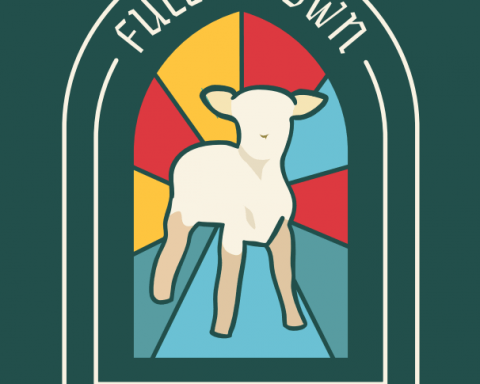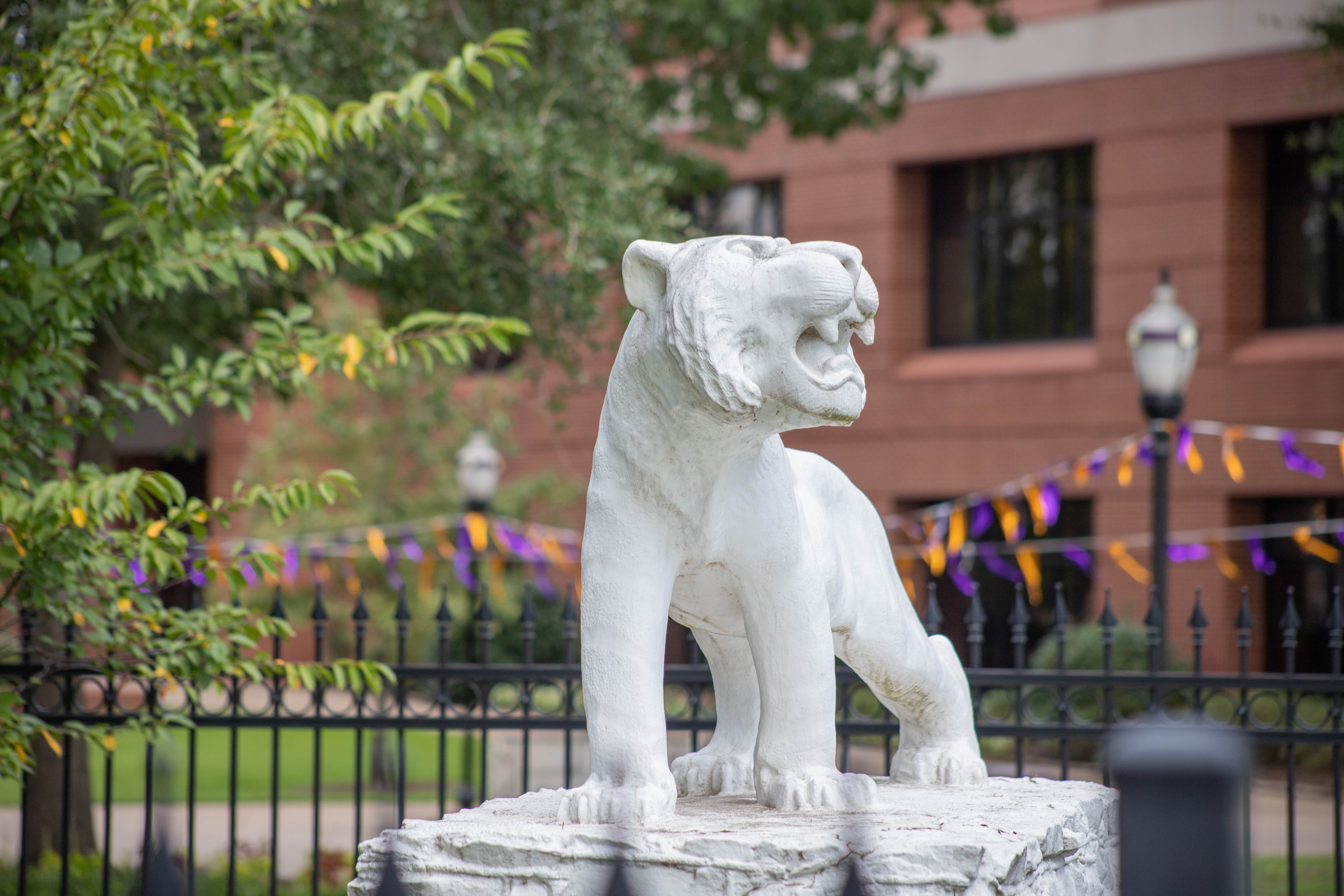During spring break, I presented two papers at an international convention for the English Honors Society Sigma Tau Delta, and that is all Dr. Amy Sonheim’s fault.
Sonheim, professor of English, is loving and silly, yet challenging and brilliant. Most of all, however, Sonheim is annoyingly persistent (when it comes to convincing students to submit work for conventions and Scholars Day). Sonheim believes in her students.
Sigma Tau Delta, the English honors society, holds an annual convention to showcase members’ critical essays as well as creative non-fiction, fiction and poetry. Ariel Bealer, Rachel Dunnahoe, Sarah Stark and I were invited to present our writing at the 2009 convention, held in Minneapolis, Minnesota.
In Minneapolis, the constant flurry of snow, the biting cold and the tall, downy cedars caused me to think Minnesotans live in a perpetual Christmas — the effect was strangely homey. I couldn’t help but smile every time someone said, “So, ya know.”
And maybe I’m a total dork, but I thought the convention was almost intoxicating. I read my writing to rooms full of people, who listened eagerly and laughed in all the right places — I felt the way an amateur fiddler might feel with a Stradivarius.
As we checked into the Hyatt Regency, Dunnahoe and I argued over whether the apples in the decorative baskets were up for grabs. Then a man behind us sarcastically said, “You’d think there was a students’ convention going on or something.”
I was offended. Up until that point, I’d been feeling grown up. I think the Jansports gave us away.
Before attending, I’d heard of Sigma Tau Delta’s convention, but I assumed the event was something for the smart kids, not me. I only recently discovered a love of learning. Last semester, somewhere between the story of Eleanor of Aquitaine and an absurd enjoyment of German grammar, I decided I wanted to go graduate school. Then I was inducted into Sigma Tau Delta, and I thought, “Resume material.”
That was all. I had little concern for Sigma-Tau-hoo-ha.
When this happened: “It is my pleasure to inform you that your creative nonfiction ‘How Not to Get Famous on YouTube’ has been accepted for presentation at the 2009 Sigma Tau Delta Convention.” Someone a little bit important thought something I wrote was pretty good. I felt the way a normal person might feel if something significant happened, like winning the lottery or the presidency of the United States. It was the same sort of feeling.
I knew the better part of the population had never heard of Sigma Tau Delta or the convention, but I couldn’t help being ecstatic. I was presenting two papers at a students’ convention. Next stop: Pulitzer Prize.
Then I found out that out of 850 submissions, more than 700 papers were accepted. I think not being accepted might have been more shocking. When I am prideful, God kindly kicks me in the face.
I soon realized I had to read my work in front of people — real, live, walking, talking, breathing people. I find nothing more terrifying sharing my writing, tiny pieces of me, with total strangers. I fancy myself a decent writer. I’d like to keep it that way. That’s why no one is allowed to read my stuff.
Then the unthinkable happened: “It is my pleasure to inform you that your creative fiction ‘Toby’ has been accepted for presentation at the 2009 Sigma Tau Delta Convention.” Not again. How annoying.
In the weeks beforehand, I was stumbling around in the dark when it came to the convention, but apparently, there is a group of people called the current “prominent authors.” I was going to meet four of them.
After the convention, I developed the theory that by virtue of being an author, someone is an interesting person. If you are an author, people read your books and, therefore, care about what you have to say.
Our first night in Minnesota, after Dunnahoe swiped an apple but I opted not to, the other girls were tired from traveling and fell asleep on the fluffy beds. Not me. A prominent author named Kris Kutcher was speaking.
Besides, I was so swept away by the idea of an actual, real-live author that I didn’t care that I’d never heard of him and that I didn’t have a clue what books he wrote. I was going to listen.
These past few days, as I fall asleep later at night, I see the faces of the authors I met, and I repeat snip-bits of their conversations in my mind, over and over, like a 3 year old flipping through the same picture book for hours. I can’t stop thinking about writing.
One author that stands out especially was science-fiction and fantasy writer Neil Gaiman. He had funny hair and a cool accent. He told us being a writer had no rules except “Write.” Also, “Finish things.” And “When you finish, send it off to the publishers.” Finally, “Stop editing, eventually. Realize you won’t make it perfect.” And that was all, he said. He explained that there’s no secret ingredient to being a successful writer.
Michael Perry had a funny accent and no hair at all. As a cowboy with a nursing degree who became a writer by accident, he was kind and laid back. When he signed my copy of “Population: 485,” he said, “My pleasure,” so honestly I felt he was simply grateful to be an author at a book signing — in no way prideful, instead, content.
Chris Crutcher writes fiction about kids with tough lives, who make it out all right in the end. He’s a child psychologist. Though he writes fiction, as a writer, he claims he is in a “gold mine.” Even so, his job did not immediately transfer to his novels.
“Now you can’t take what you hear in a therapy session and publish it unless you have a really good lawyer and no ethics,” Crutcher said. “But what happens is this: after hearing hundreds of stories, truth starts to surface. And that truth becomes the basis of my fiction.”
Good fiction is believable, Crutcher explained. After he spoke, I briefly considered entering the helping profession, but then decided my motives might not be in the right place.
Next the non-fiction author Alexander Fuller spoke. Fuller was a proud and fiery liberal with a strong sense of injustice and an aim to change the world. She swore a lot, and the audience laughed a lot. I learned a lot. As she spoke, she revealed truths about writers finding their voices as opposed to their neuroses, a principle she demonstrates in her books.
Fuller wrote a vivid and honest autobiography called “Don’t Let’s Go to the Dogs Tonight.” Though the extent of her honesty upset her family, Fuller refused to allow the publishing companies to change names. She writes to convey truth, she passionately declared.
Then it was my turn. Before I presented my first paper, after listening to the other student presenters, I was certain there was some memo I didn’t get. The other stories in my panel were all blood and guts, with Gothic themes. I grew a little self-conscious. My short story was about a pensive girl sitting on a porch swing and how she may or may not be in love with a boy named Toby. Why hadn’t I killed anyone?
After the session, a timid blonde girl approached me and thanked me for reading my short story “Toby.”
“I was getting really depressed by the other stories,” she said, with big eyes.
Then a more obnoxious person pointed out that in my story, though I spoke ill of the celebrated, Nobel Prize-winning William Faulkner, my page long sentences echo his style. I kicked her. No, I did not kick her. Actually, I hugged her. I was just so happy to have someone besides my mom comment on my writing.
Strange things happened. The next day, on the elevator, someone said, “You’re the girl who wrote ‘Toby’ — I like your humor and stream of consciousness.” I could have kissed her, but instead, I merely smiled and said thank you.
The comments people made about my writing probably should not have been life-changing, but when you love something as much as I love writing, and you spend hours at the computer, rearranging sentence structure, all for a silly little story, well, a little gratification from someone who has no reason to be polite to you, is kind of extraordinary. Not to say that I think I’m the next T.S. Elliot, nothing like. I just have a little bit of passion, and that passion grew a little bit during spring break.
When I think about the number of aspiring writers as opposed to the number of authors, I fear I am the William Hung of the literary world, but without the fame. At the convention, I met hundreds of people just like me — college kids with decent vocabularies who dream of chatting with David Letterman about their latest novel. I want to be a writer — a lofty goal. Silly, I know.
Was the convention the defining moment of my future career? No. At the convention, I was not offered a contract with a publishing company, and no one ran me over for an autograph.
Though, one professor did ask me to keep a blog so she could read along, which was strange yet flattering.
During spring break, I presented two papers at an international convention. Well that was fun.






